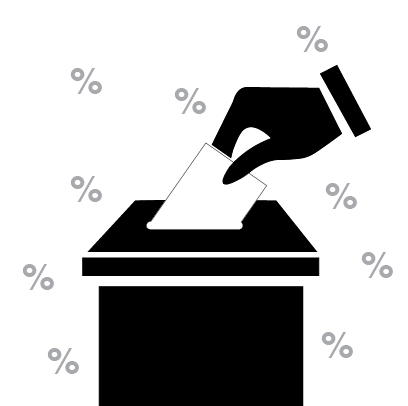The Daily Aztec sat with Africana Studies Assistant Professor Antwanisha Alameen-Shavers to discuss racial privilege as it exists in society today.
Daily Aztec: What is the most interesting part of being an Africana Studies professor?
Antwanisha Alameen-Shavers: The most interesting part is that we are at a PWI, Predominantly White Institution, and I’m in Africana Studies, but even though I’m at a PWI, most of my classes are still African American, and I find that to be interesting because these classes are not just for African Americans. They are also to educate the whole population about our history, because our history is also American History. So I think it’s interesting that I have classes that are still predominantly African American as opposed to White American, because this campus has more White Americans.
DA: Do you see a lot of diversity in the classes being offered in the department as a whole?
AS: So, this is complex because, like I said, my classes are predominantly African Americans and so we, as African Americans have been viewed as, “If you see African Americans in a class then that’s diversity.” But my classes are mostly African American students, so I would like some more White students to come, because it would sort of mix it up, and bring different types of people who need to hear this message. My classes don’t reflect the campus population, but that’s not the case with all Africana Studies classes, my classes are just a little smaller.
DA: What is the most misguided assumption made about Africana Studies?
AS: I think students may feel that it’s anti-white, or that we’re against white people and in Africana Studies you’re going to talk about racism in some of your classes, because the lives of African Americans have been characterized by race and racism, so you’re going to talk about those things. Right? And through this students may feel that it’s a direct attack on them, but it’s not, it’s an attack on white supremacy or the idea of White supremacy, or what should’ve shaped this country, and ideas about Whiteness, but not the actual White individual.
DA: Do you think it’s important for people to take classes like this to become aware of this?
AS: Oh it definitely is, it’s important for everybody, not just Black students. It is important for Black students in regards to identity and their experiences and putting their experiences into the proper context and understanding your history. But I also think that it’s important for White students to take it so that they can understand their privilege, understand how racism has had not only a negative impact on African Americans, but how it has then impacted them in whatever way. Because we talk about one end of it, but you have to talk about the other end of it. There’s always two sides to the story, always two sides of the coin. Tim Wise talks about how we always talk about the underprivileged, but we never talk about the over privileged. So there’s always that opposite thing that we need to address.
And it’s also important if we’re going to move forward as a country and attempt to really realize and become a post-racial society—we have not gotten there yet—but if we’re going to realize that, then we’re going to need the younger generation, White young people to right the wrongs of the past. But you can’t right the wrong if you don’t understand what is wrong with society, because you think that it’s normal, you don’t even see the issue.
DA: As an expert in racial studies, would you say that privilege, as it pertains to all aspects of life, still exists today?
AS: Oh, yeah. But there are different types of privilege.
But I don’t think we understand privilege. I think it’s difficult, particularly in Africana Studies to talk about white privilege with White students because they shut down. Unless you come into it with an open mind most students will shut down, because they start to feel guilty, they feel like they’re being blamed, or they feel like we’re arguing that they didn’t work hard. But that’s not what that’s about.
DA: How would you define racial or gender privilege?
AS: I was thinking about this last night, because I’m trying to get people to not shut down as soon as they hear “privilege,” especially “White privilege.” So I think about it like this: You know how if you’re in high school, there are the jocks, the football players, the cheerleaders, or the popular kids, and they get all the attention and some of the students tend to want to be like them, and some of the teachers even give them a little leeway, particularly the football players. Or maybe even that student that is sort of the teacher’s pet. And you will see that the student will do the same thing that maybe another student does, but they don’t get punished the same way. So you’re thinking, “Well why is it okay for Ali to get up out of her seat?” Well, that’s because the teacher favors her. Or why can the student athlete turn in an assignment late? Well that’s because that student is favored. So you think about favoritism, or when you go to the club and some people go right to the front of the line. And you think, “Why do those women get to right to the front of the line?” It’s because they’re favored for whatever reason.
So I think that when we think about privilege, particularly White privilege, we need to think about how White people in this society are favored, and when you’re favored there are certain advantages that come with it. You know, you get a job quicker than somebody else, or quicker than somebody of color. You’re less likely to get pulled over for the same illegal thing you might be doing, like speeding, but you’re still less likely to get pulled over than a person of color—because you’re favored.
DA: Why do you think it’s hard for people to admit that they might have privileges?
AS: Because if you admit to some privilege, then you’re admitting that there is some sort of disadvantage for other people, or that there’s not an even playing field. And that somehow the work that you put in, you didn’t work as hard as someone else. It’s like all of a sudden your work is not as valuable. You’re sort of saying that you only got there because you’re white. And that’s not what we’re saying. You didn’t only get here because you’re white. We’re saying that whiteness has given you a leg up.
DA: What is still driving privilege?
AS: I think that what keeps privilege around, at least the type of privilege that we see today is around because the foundation of this country has never been uprooted. It’s never been dismantled. Just because we have a Black President does not mean that the agenda of the original founders has changed. If the agenda has always been to keep power in the hands of White elite men, and we still see that power is in the hands of White elite men, then we know that privilege, as we see it, will remain.
We have to say that we have a problem with that and try to change it, or say we don’t have a problem with it, and it will continue to go on. And I think that most people don’t have a problem with that.
DA: Other than time and progress, what do you think could put an end to privilege, if at all possible?
AS: Education. This is the reason why I’m here. That’s just one avenue, it isn’t the only avenue, but it’s one—trying to educate young people. My hope is that if we can get to young people, like yourself, and really be able to break this down so you understand that this is wrong and understand how it impacts us all in a negative way, then we can work together to dismantle it and change it.
We need a new vision. The vision of the people that founded this country cannot be the vision that we uphold to this day. We need a vision that includes everybody, so that we can live harmoniously, we can’t live harmoniously with each other if we have one group that is still seen as more worthy, more valuable, more human than other groups of people. We can’t hold onto that old vision, we just can’t. So yes, education, that’s why I’m a professor.






